Introduction
Managing rental properties can be a full-time job—handling tenant inquiries, maintenance requests, rent collection, and legal compliance often overwhelms individual landlords. That’s where property management companies come in. By partnering with a professional management firm, landlords can offload day-to-day responsibilities and enjoy a more hands-off investment. In this post, we’ll explore the core services that property management companies typically provide: tenant acquisition, rent collection and financial reporting, maintenance coordination, legal compliance, and additional value-added offerings. Understanding these services can help you decide whether a property manager aligns with your investment strategy and goals.
1. Tenant Acquisition and Leasing
1.1 Marketing and Advertising
- Listing Creation: Crafting engaging listings with professional photos, detailed property descriptions, and highlighting key amenities (e.g., “brand-new appliances,” “on-site parking,” “pet-friendly”).
- Multi-Channel Promotion: Posting listings on major platforms like Zillow, Apartments.com, Craigslist, and social media channels to maximize exposure.
- Supply of Signage: Placing “For Rent” signs on the property with contact information or QR codes that link to online listings.

1.2 Tenant Screening
- Background Checks: Running criminal background checks to ensure tenants do not have serious offenses that pose a risk to the property or neighbors.
- Credit Reports: Evaluating credit scores and payment histories to assess financial reliability.
- Income Verification: Confirming employment status or other income sources to ensure tenants can afford monthly rent (typically requiring income of 2–3 times the rent).
- Rental History: Contacting past landlords to verify on-time payments, property care, and any lease violations or evictions.
1.3 Lease Preparation and Signing
- Lease Drafting: Preparing a legally compliant lease agreement that covers rent terms, security deposit rules, pet policies, maintenance responsibilities, and grounds for eviction.
- Digital or In-Person Signing: Coordinating lease signing—digitally via platforms like DocuSign or in person—along with collecting first month’s rent and security deposit.
- Move-In Inspection: Conducting a detailed walkthrough with the tenant, documenting the property’s condition (floors, walls, appliances) to establish a baseline for security deposit returns.
2. Rent Collection and Financial Reporting
2.1 Rent Collection
- Online Payment Portals: Setting up secure portals (e.g., PayRent, Buildium, Cozy) where tenants can pay by ACH, credit/debit card, or recurring auto-pay.
- Late Fee Enforcement: Automatically applying late charges per the lease’s terms if rent is not received by the due date.
- Delinquency Notices and Follow-Up: Issuing formal notices (5-day, 10-day reminders) and following up on past-due accounts, sometimes escalating to legal notices if tenants remain delinquent.
2.2 Security Deposit Management
- Trust Accounts: Holding security deposits in separate, escrowed accounts per state or local regulations.
- Move-Out Accounting: After a tenant vacates, itemizing deductions (unpaid rent, cleaning, repairs beyond normal wear and tear) and returning the remainder within the legally mandated timeframe (often 14–30 days).
2.3 Accounting and Reporting
- Monthly Statements: Providing landlords with detailed statements showing rent collected, expenses incurred (maintenance, utilities if paid by owner), management fees, and net cash flow.
- Annual Tax Reports: Issuing year-end reports (e.g., Form 1099-MISC or equivalent) summarizing total rents collected and points paid to vendors, simplifying tax preparation.
- Budgeting and Forecasting: Offering projections for upcoming maintenance, capital improvements, and vacancy reserves based on historical data and market trends.

3. Maintenance and Repairs
3.1 Preventative Maintenance
- Routine Inspections: Scheduling periodic inspections (quarterly or biannually) to check HVAC filters, smoke detectors, plumbing fixtures, and notice any early signs of damage.
- Seasonal Tasks: Coordinating tasks like gutter cleaning, winterizing outdoor faucets, checking heater and air-conditioning readiness before seasonal extremes.
3.2 Emergency Repairs
- 24/7 Emergency Hotline: Ensuring tenants can report urgent issues—burst pipes, gas leaks, electrical failures—anytime.
- Preferred Vendor Network: Leveraging a roster of licensed plumbers, electricians, HVAC technicians, and handymen who can respond quickly, often at negotiated rates.
- Authorization Protocols: Defining repair thresholds in the management agreement—e.g., up to $500 may be approved immediately; higher costs require landlord sign-off unless life/safety is at risk.
3.3 Turnover Maintenance
- Move-Out Cleaning and Repairs: After tenant departure, arranging professional cleaning, carpet shampooing, HVAC filter replacement, painting touch-ups, and minor repairs to prepare the unit for the next occupant.
- Vendor Management: Obtaining quotes, scheduling work, and ensuring quality control—documenting before-and-after photos to validate completed tasks.
4. Legal Compliance and Risk Management
4.1 Lease Enforcement and Evictions
- Lease Violation Processing: If a tenant violates lease terms—unauthorized pets, subletting, noise complaints—issuing formal notices (e.g., 3-day pay-or-vacate, 30-day notice to cure) per local statutes.
- Eviction Proceedings: When necessary, filing eviction paperwork in the proper jurisdiction, coordinating service of summons, and representing the landlord in court (or working with an attorney).
- Security Deposit Return Compliance: Handling deposit accounting in accordance with state laws, avoiding potential lawsuits over improper withholding.

4.2 Fair Housing and Local Ordinances
- Fair Housing Training: Staying current on the Fair Housing Act to ensure no discrimination based on race, religion, sex, familial status, disability, or other protected classes.
- Rent Control and Local Regulations: Monitoring city or county rules—rent caps, just-cause eviction protections, licensing requirements—and advising owners on any necessary adjustments (e.g., filing annual rent increase notices).
4.3 Insurance and Risk Mitigation
- Property Insurance Requirements: Verifying that owners maintain proper hazard and liability coverage.
- Tenant Renter’s Insurance: Encouraging or requiring tenants to carry renter’s insurance to cover personal belongings and liability for damages they cause.
- Safety Compliance: Ensuring smoke/CO detectors work, stair railings meet code, and any lead-based paint or asbestos issues are addressed according to federal and local guidelines.
5. Additional Value-Added Services
5.1 Lease Renewals and Rent Adjustments
- Market Rent Analysis: Conducting periodic rent reviews—comparing comparable units in the neighborhood to recommend fair renewal rates (typically every 12 months).
- Renewal Incentives: Offering small upgrades (fresh paint, updated fixtures) or minor concessions (one free month) to entice quality tenants to stay longer.
5.2 Vendor Negotiation and Bulk Discounts
- Bulk Service Contracts: Aggregating maintenance, landscaping, and janitorial needs across multiple properties to negotiate lower pricing for plumbing, electrical, pest control, or pool maintenance.
- Preferred Vendor Relationships: Prioritizing a few reliable vendors who deliver quality work at consistent rates, reducing delays and unexpected costs.
5.3 Technology and Reporting Portals
- Landlord Dashboards: Providing online portals where owners can view real-time financials, maintenance requests, lease statuses, and tenant communications.
- Tenant Portals: Allowing tenants to pay rent online, submit maintenance tickets, and review lease documents digitally—enhancing transparency and reducing phone calls.
5.4 Eviction Prevention and Tenant Retention
- Mediation Services: Offering conflict resolution or mediation between landlords and tenants to prevent small disputes from escalating.
- Tenant Satisfaction Surveys: Periodically gathering feedback to address minor issues before they become reasons for vacancy, ultimately reducing turnover costs.

Conclusion
Property management companies offer a comprehensive suite of services that relieve landlords of time-consuming tasks while ensuring properties remain well-maintained, compliant with regulations, and financially optimized. From tenant acquisition—marketing, screening, and leasing—to ongoing rent collection, maintenance coordination, and legal compliance, property managers act as full-service partners. Many firms also add value through vendor negotiation, technology-driven reporting, and tenant retention strategies. By outsourcing these responsibilities, property owners can focus on portfolio growth and strategic planning rather than day-to-day operational headaches. If you own one unit or a hundred, engaging a reputable property management company can streamline your rental business and enhance your return on investment.


